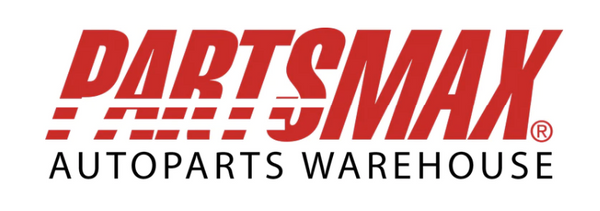ECU tuners have become increasingly popular among automotive enthusiasts seeking to maximize their vehicle's performance. Understanding the real-world impact of engine control unit (ECU) tuning is crucial for making informed decisions about your vehicle's modifications. In this comprehensive guide, we'll explore the hard data behind ECU tuners, their benefits, potential risks, and what you need to know before considering this performance upgrade.
What Is an ECU and How Does It Work?
Your vehicle's Engine Control Unit (ECU) is the brain of its engine management system. This sophisticated computer controls various aspects of your engine's performance, including fuel injection timing, air-fuel mixture, boost pressure in turbocharged vehicles, and ignition timing. The stock ECU comes pre-programmed with conservative settings that prioritize reliability, emissions compliance, and fuel efficiency across various driving conditions.
Understanding ECU Tuning Methods
Modern ECU tuning has evolved significantly from the early days of chip tuning. Today's methods include flash tuning, plug-and-play tuning devices, and custom dyno tuning. Each approach offers different levels of customization and performance potential. Professional tuners use sophisticated software to modify various parameters within your ECU's programming, optimizing them for your specific modifications and performance goals.
Performance Gains: What the Data Shows
Real-world dyno testing has demonstrated significant performance improvements through ECU tuning. Here's what the data reveals:
Naturally, Aspirated Engines typically see gains of:
- Horsepower: 5-15 additional HP
- Torque: 8-12 ft-lbs increase
- Throttle Response: Notable improvement in responsiveness
Turbocharged Engines often experience more dramatic improvements:
- Horsepower: 20-50 additional HP
- Torque: 30-70 ft-lbs increase
- Boost Pressure: Optimized for maximum safe performance
Risks and Considerations
While ECU tuning can deliver impressive performance gains, it's essential to understand the potential risks. Aggressive tunes can increase engine stress, potentially affecting long-term reliability. Also, improper tuning can damage engines, increase emissions, and voided warranties. Working with reputable tuners and maintaining proper supporting modifications is crucial for successful ECU tuning.

Supporting Modifications
For optimal results, ECU tuning should be complemented by appropriate supporting modifications. These may include:
High-flow air intakes Performance exhaust systems Upgraded intercoolers (for turbocharged vehicles) Higher-quality fuel Enhanced cooling systems
Frequently Asked Questions
What is ECU Tuning?
ECU tuning involves reprogramming your vehicle's engine control unit to optimize performance parameters. This can include adjusting fuel maps, ignition timing, boost pressure, and other variables to extract more power from your engine while maintaining reliability.
Is ECU tuning legal?
The legality of ECU tuning varies by jurisdiction. While many tunes are legal for off-road and racing applications, some aggressive tunes may not comply with emissions regulations for street use. Researching your local laws and ensuring your tune maintains emissions compliance for street-legal vehicles is essential.
Are ECU tuners worth it?
The value of ECU tuning depends on your goals and expectations. For enthusiasts seeking improved performance and willing to accept some additional risk, ECU tuning can provide significant benefits. However, weighing the costs, potential risks, and your vehicle's warranty status is important before proceeding.
Can ECU tuning improve fuel economy?
ECU tuning can improve fuel efficiency when programmed with economy in mind. While performance tunes typically reduce fuel economy, economy-focused tunes can improve efficiency by 1-3 MPG by optimizing fuel maps and timing. However, these gains are highly dependent on driving style and conditions. Most enthusiasts should note that aggressive driving with any tune will likely negate potential fuel economy benefits. For the best results, consider working with a professional tuner who can create a dual-map setup, allowing you to switch between performance and economy tunes based on your driving needs.
How long does ECU tuning take, and can I do it myself?
Professional ECU tuning typically takes 2-4 hours, including initial diagnostics, tuning process, and final testing. While DIY tuning tools are available, we strongly recommend working with experienced professionals for several reasons. Professional tuners have access to sophisticated diagnostic equipment, dyno testing facilities, and, most importantly, the expertise to safely modify your ECU parameters. DIY tuning carries significant risks, including potential engine damage, poor performance, and reliability issues. The cost of repairing a damaged engine far outweighs the initial savings of DIY tuning. Additionally, professional tuners can provide ongoing support and adjustments as needed.
Cost Analysis
Professional ECU tuning typically ranges from $500 to $2,000, depending on the method and level of customization. While this represents a significant investment, many enthusiasts find the performance gains justify the cost compared to traditional mechanical modifications.
Choosing the Right Tuner
Selecting a reputable tuner is crucial for successful ECU modification. Look for:
- Extensive experience with your specific vehicle make and model
- Proven track record with documented results
- Professional dyno testing capabilities
- Strong customer reviews and references
- Comprehensive support after tuning
Monitoring and Maintenance
After ECU tuning, proper monitoring and maintenance become even more critical. Consider investing in:
- Real-time monitoring systems
- Regular data logging
- High-quality fuel
- More frequent oil changes
- Professional inspections
The Future of ECU Tuning
As vehicles become increasingly computerized, ECU tuning continues to evolve. Modern tuning solutions offer sophisticated features, such as multiple maps for different conditions, real-time adjustments, and enhanced safety protocols. This evolution makes ECU tuning more accessible while potentially reducing risks.
Conclusion
ECU tuners represent a powerful tool for enhancing vehicle performance when properly implemented. The key to successful ECU tuning lies in understanding the technology, choosing reputable professionals, and maintaining appropriate supporting modifications. While PartsMax doesn't directly offer ECU tuning services, we support enthusiasts in their performance journey with a comprehensive selection of high-quality aftermarket parts that complement ECU tuning.
Ready to enhance your vehicle's performance?
While PartsMax doesn't sell ECU tuners, we offer a wide selection of premium aftermarket parts that can complement your vehicle's performance upgrades. Visit our warehouse in Miami at 3401 NW 73rd ST, Miami, FL 33147, or browse our online inventory for the highest quality performance parts.
Call us at (305) 691-1313 to learn more about our selection of performance-enhancing components, which can help you achieve your automotive goals.

